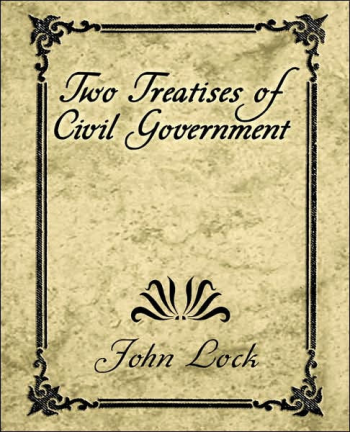
The Two Treatises of Civil Government is a work of political philosophy published anonymously in 1689 by John Locke. The First Treatise is an extended attack on Sir Robert Filmer's Patriarcha, which argued for a divinely-ordained, hereditary, absolute monarchy. The more influential Second Treatise outlines a theory of civil society based on natural rights and contract theory. Locke begins by describing the "state of nature," and goes on to explain the hypothetical rise of property and civilization, asserting that the only legitimate governments are those which have the consent of the people. Locke's ideas heavily influenced both the American and French Revolutions. His notions of people's rights and the role of civil government provided strong support for the intellectual movements of both revolutions.
About the author: John Locke (1632-1704), English philosopher whose works lie at the foundation of modern philosophical empiricism and political liberalism. He was an inspirer of both the European Enlightenment and the Constitution of the United States. His political thought was grounded in the notion of a social contract between citizens and in the importance of toleration, especially in matters of religion. Much of what he advocated in the realm of politics was accepted in England after the Glorious Revolution of 1688-89 and in the United States after the country’s declaration of independence in 1776.
-
Xi urges teachers to contribute more to realizing national rejuvenation
Xi urges teachers to contribute more to realizing national rejuvenation
-
Chinese premier calls for advancing economic globalization, unity within G20
Chinese premier calls for advancing economic globalization, unity within G20
-
China's opening-up, improved business environment garner foreign investors' confidence
China's opening-up, improved business environment garner foreign investors' confidence
-
Russian-Chinese forum "Rostki" boosts practical cooperation
Russian-Chinese forum "Rostki" boosts practical cooperation